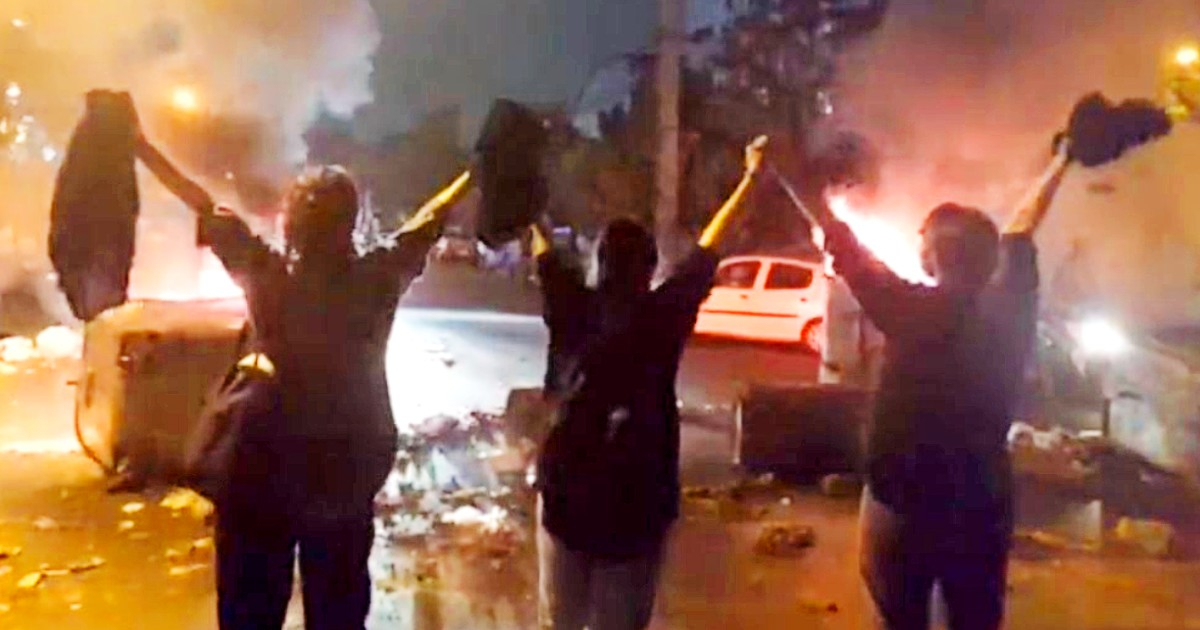
The Army of the Islamic Republic of Iran (Artesh) threatened on Friday to intervene in the protests unleashed in that country that, massively, have sent hundreds of thousands of Iranians into the streets.to denounce the death in police custody of a 22-year-old girl arrested for not wearing the hijab “correctly”.
After the unclarified death ofMahsa Amini, the 22-year-old girl who was arrested by the Moral Police, thousands of women have demonstrated against the ayatollah regime that since the so-called Iranian “revolution” controls power in that country and imposes extreme religious fundamentalism on its population.
“We are ready to help our colleagues in the Police”, the Armed Forces said in a statement warning the protesters that it is willing to intervene with all its troops, almost a million armed men.
In that sense, the Army also warned that due to what it considers to be the proliferation of “anti-revolutionary movements” it will be allowed to persecute “illegal meetings.” For their part, pro-government marches travel through the streets of the country calling for the execution of those protesting against Amini.
Waving flags, regime supporters called anti-government protesters “soldiers of Israel” and chanted “death to America” and “death to Israel,” common slogans used by the country's clerical rulers to try to drum up support.
Despite the repression they are suffering,with at least 41 people dead In the protests, according to Iranian state television's own data, demonstrations continue throughout the country while more women publicly remove their veils and, supported by men opposed to the regime and outraged by the situation, challenge the authorities.
Clashes with the police and with members of the Iranian Revolutionary Guard (Pasdaran) have marked days of unrest in several cities in the country when more than a week has passed since the death of Mahsa Amini was confirmed, after his arrest at the hands of the Moral Police last Tuesday, September 13.
This Friday, September 23, the Army of the Islamic Republic of Iran announced that it is ready to intervene in case the other Iranian repressive forces are overwhelmed by citizens.
For its part, Tehran insists that social rejection is motivated by foreign governments, while the world demands Justice and demands respect for women's rights, in a new wave of solidarity with the civil society of that country.
In addition to Artesh, the Armed Forces of the Islamic Republic of Iran bring together the Islamic Revolutionary Guard Corps (Sepāh) and the Law Enforcement Force (Police). They are the largest in the Middle East in terms of active troops.
Iran's military forces are comprised of approximately 610,000 active duty personnel plus 350,000 reserve and trained personnel who can be mobilized when necessary, bringing the country's military personnel to approximately 960,000 personnel in total. These numbers do not include the Law Enforcement Force or Basij.
For its part, the Islamic Revolution Guards Army is a branch of the Iranian Armed Forces, founded after the Iranian Revolution on April 22, 1979 by order of Ayatollah Ruhollah Khomeini.
While the Iranian Army defends Iran's borders and maintains internal order, according to the Iranian constitution, the Sepāh is intended to protect the political system of the country's Islamic republic. The Revolutionary Guards claim their role in protecting the Islamic system is to prevent foreign interference, as well as coups by the military or "deviant movements."
Far from questioning the suspicious circumstances of the death of the 22-year-old girl and focusing on the investigations, the authorities insist on pointing out that the demonstrations are an alleged conspiracy directed from abroad to affect the Iranian Government.
Although the officers assured that they would only transfer her to a "reeducation" class, two hours later she was transferred by ambulance from the police station where she was to a hospital. He suffered cardiac arrest and arrived brain dead. The family and thousands of people report that he was the victim of a brutal beating.
With hundreds of arrests and chaos and violence unleashed in the country with police stations and vehicles set on fire by protesters, Iranian authorities fear a resurgence of the protests that broke out in 2019 due to the increase in gasoline prices, the most bloody events in the history of the Islamic Republic in which around 1,500 people lost their lives.
As protests continue, scenes of women cutting their hair and burning their hijabs while chanting "Freedom!" Turned into an open challenge to the Government, in the demonstrations it is common to hear chants calling for "death to the dictator!" and “the mullahs must go!”
Iran's Intelligence Ministry warned citizens not to join “illegal” protests and threatened to prosecute them. For its part, Amnesty International accused security forces of hitting protesters with batons and firing metal pellets at point-blank range, as shown in some videos released.
What do you think?
COMMENTFiled in: